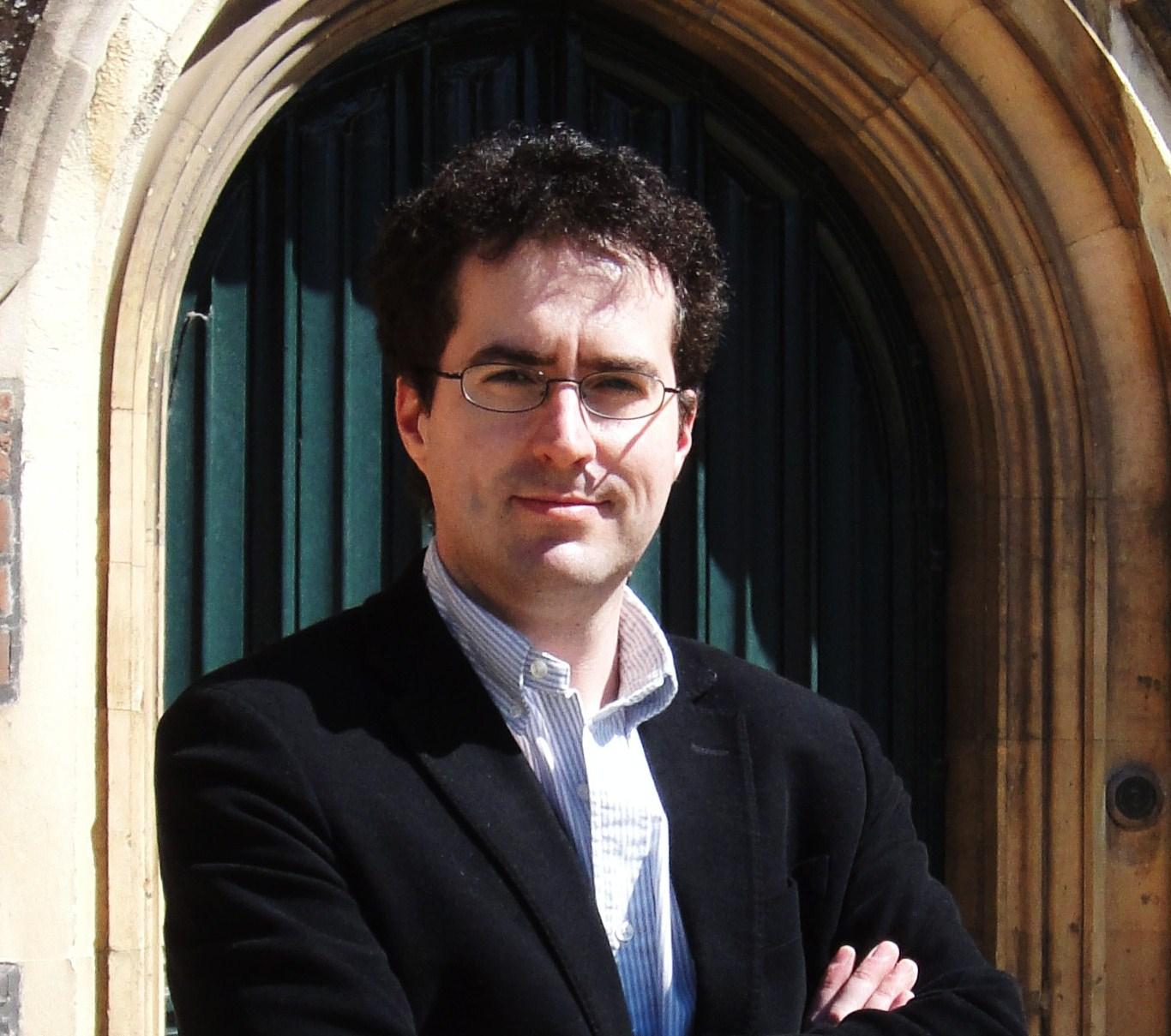James Hannigan Interview: The Emotions Behind the Horror (March 2013)
Interview Credits
Interview Subject: James Hannigan
Interviewer: Michael Naumenko
Editor: Michael Naumenko, Simon Elchlepp
Coordination: Michael Naumenko
Interview Content
James Hannigan: My first reaction was one of simply being honoured for being asked on board, and that quickly gave way to me thinking about what I could add to the game that was ‘me’ but also stylistically appropriate for it - taking into account that Dead Space 3 was to be slightly wider in scope and larger in scale than earlier entries in the series.
Michael: How familiar were you with the Dead Space series before you jumped in the co-composer's seat for Dead Space 3?
James Hannigan: Yes, I was well aware of the series and its general awesomeness, but had only played the first game before coming on board.
Michael: Your body of work and that of Jason displays quite different stylistic traits and that duality is certainly audible in the soundtrack. How close did you work with Jason? Was there air of authority between you or were you both truly autonomous all consumed by your own separate musical challenges?
James Hannigan: Very much consumed by our own musical challenges, I think. As things get closer and closer to the end of development in a game like this, you can really find your back against a wall trying to get music completed, especially when there is an orchestral score to prepare at the same time. So, really, the only thing on your mind is the cue you’re working on in the here and now, and what you need to get done in general. But to answer your question, we largely worked on separate areas of the game, but at times our music gets played back to back or in the same locations. We also had audio director Nick Laviers and his team overseeing the relationship between all the elements of the soundtrack to rely on. I feel it all hangs together rather well, and is best heard in context.

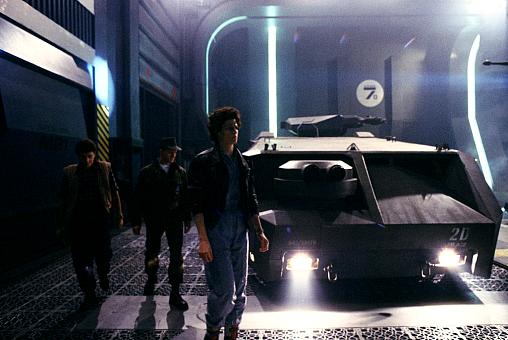
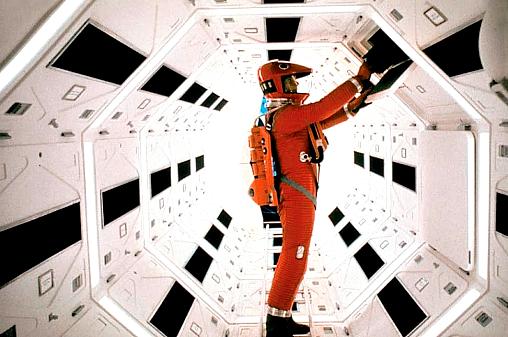
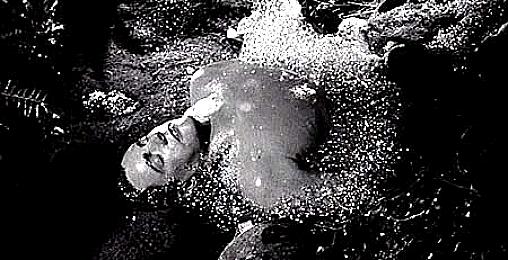
MIchael: Dead Space 3 seems to borrow heavily from John Carpenter's The Thing, as well as from James Cameron's Aliens. What was your inspiration for the work and did you use any references for the game while composing the music?
James Hannigan: Actually, there was very little temp music given over to me, or any particular references mentioned. In most cases, the brief I was given was to be very centred on the emotional content of the music. Although some of the action music is quite visually led, a lot of the music in Dead Space 3 (and I guess this is also true of the earlier entries) is very atmospheric and exists to evoke powerful emotional responses in the player, regardless of visual cues. In fact it’s a series of games that I feel truly needs its music and sound heard in order to be experienced properly.
The brief was less about style and more about feelings – which, for me at least, is a really great thing. Occasionally, one might be conscious that a cue is leaning towards the style of a particular film series or genre, but not to the extent that any one style or direction dominates the whole score. What you try to do is communicate to the player using an understood musical language, and perhaps one fairly familiar to sci-fi or horror fans in general, but also to put something of yourself within that framework as well. You’re always looking for some middle ground that allows you to feel you are adding something new, but your score is speaking to fans of the genre and will give them useful information when playing the game. Dead Space 3’s music and sound is highly manipulative of player emotions, so it’s really critical that music is sending out the right message every step of the way, and implementation plays a huge role in all that and getting things to flow smoothly. For me, it’s really great to be involved in a project such as this, where music and game design go hand-in-hand and audio in general forms a huge and truly integral part of the gaming experience. I only wish this was the case with every game.
Sci-fi is almost certainly my favourite genre of film, game and book, and if I had to single out some of my favourite writers I’d probably pick the usual suspects - such as Isaac Asimov, Philip K Dick and Arthur C Clarke.
Michael: Are you a hardcore sci-fi fan by any chance? If so, what's your favorite movie within that genre?
James Hannigan: Sci-fi is almost certainly my favourite genre of film, game and book, and if I had to single out some of my favourite writers I’d probably pick the usual suspects - such as Isaac Asimov, Philip K Dick and Arthur C Clarke. I must confess that I prefer stories presenting a somewhat dystopian view of the future over ones presenting a clean cut, clinical Utopian one where good and evil are very clearly defined forces. That’s not because I want such a scary world to exist in reality, but because I find it makes for a more engaging story when you put characters into that kind of setting, facing difficult circumstances. Dead Space is a little like that, I think. In Isaac you have a very human character taking on unimaginably evil forces, and he has weaknesses you can identify with (he’s not a superhero) and, as with real life heroes, he’s imperfect and is trying to stay good and moral while everything else is crumbling around him. Plus, he wants to get the girl as well and even finds time to look at her photo while floating in space. That’s pretty awesome, if you ask me.
To answer your question, my favourite sci-films are probably 2001: A Space Odyssey, Invasion of the Body Snatchers, Forbidden Planet, Alien and Star Wars (if that counts as sci-fi). But I love some others as well, for the world and atmosphere they succeed in creating – such as Blade Runner, Logan’s Run and THX 1138.
It’s easily forgotten, but part of the ‘art’ of composing to picture is about how and when you apply music as well as being about how cool your track sounds in isolation.
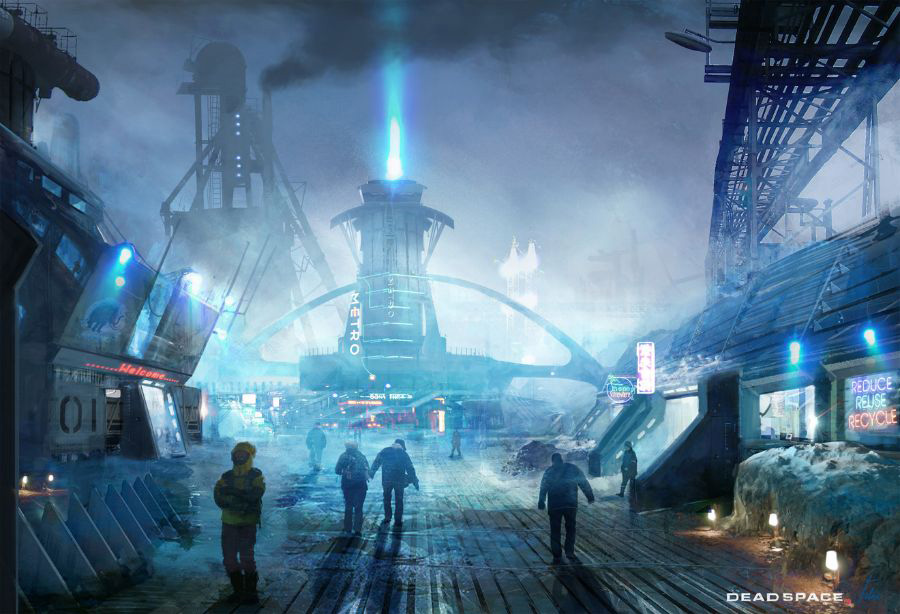
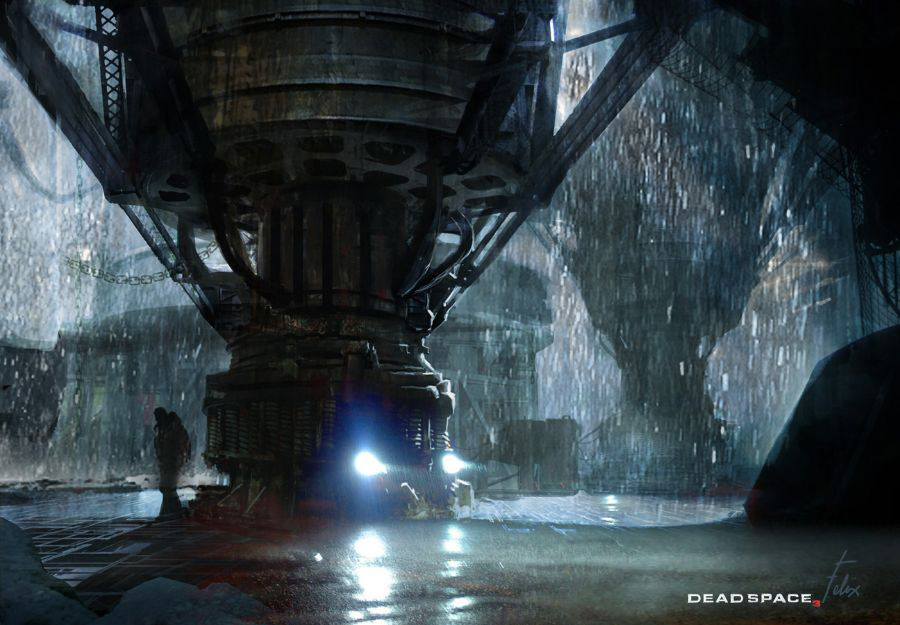
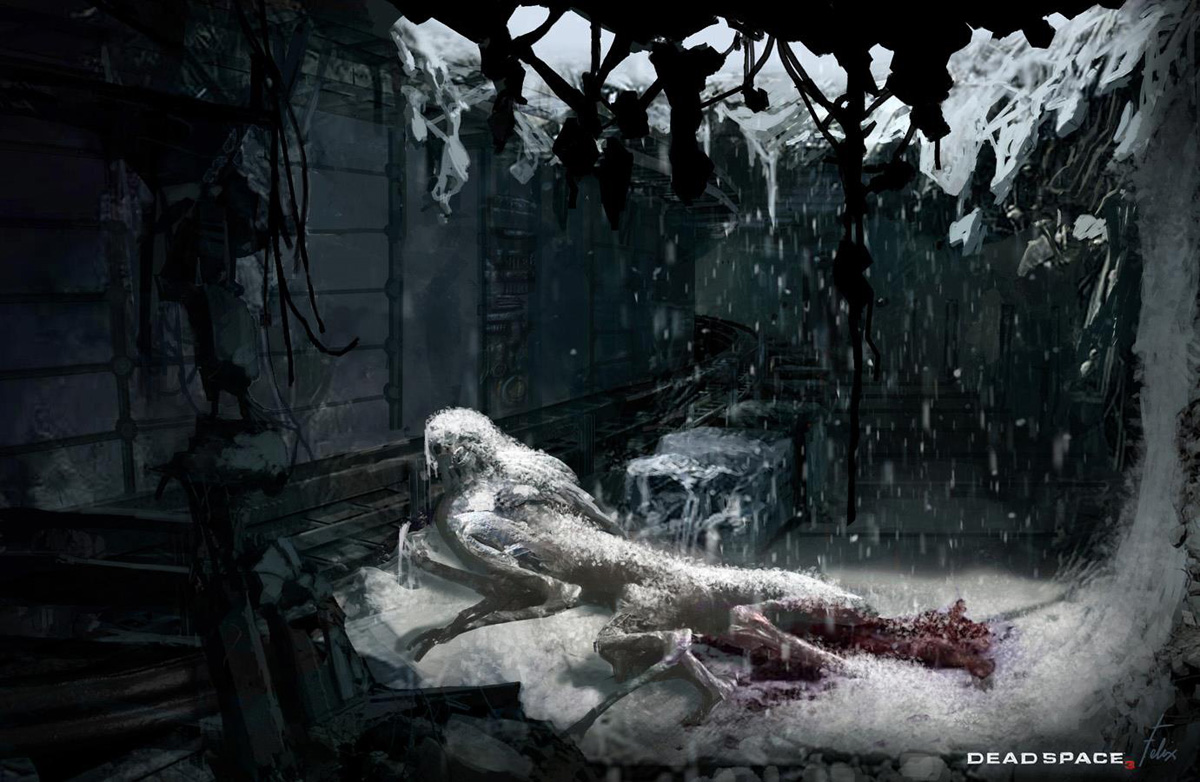
Michael: When you got involved with the project, did you have access to an early version of the game, or did you just have artwork and maybe script excerpts available?
James Hannigan: The first thing Nick outlined to me was the story and the dynamics between the various characters involved with Isaac – such as Ellie, Norton and Carver. So it was clear from the beginning that the interplay between them was going to have some influence on the music. To that end, I got to see some early versions of cutscenes between these characters, and the brief there was to really bring out a sense of tension emerging between the two men while also creating a feeling of relief at being reunited with Ellie. So, from a composer’s point of view, I was asked to write music that was far from being one dimensional (as can be the case in games, when you’re just dealing with simple game states like ‘combat’ or ‘running away’) and go into an area of conflicting emotions, adding a dimension only music can provide; in this case, a somewhat bittersweet feeling.
That’s really what you want to happen in a project like this, as very often in games a music brief simply requires something you feel is stating the obvious about what you are doing. That isn’t to say that I feel composition for games always needs to be complicated or multi-layered (in my case I try to keep music as simple and efficient as possible), but the thought process behind the music and how you arrive at what you’re going to do can actually be the most difficult part of the whole process. It’s easily forgotten, but part of the ‘art’ of composing to picture is about how and when you apply music as well as being about how cool your track sounds in isolation.
I’m very interested in how music serves a game in context, rather than in just showing off my technique, so the more you can immerse yourself in the world of the game as a composer while working on it, the better, I feel. That way, there tends to be a synergy between the music and the events of a game slowly emerging, and a kind of authenticity to everything in terms of how music fits in with the bigger picture. You try to think of each piece of music as belonging to a whole, rather than only working on cues one by one or seeing the events of the game as purely episodic chunks. Much as you would approach a film, in fact. For me, it’s the meaning embedded in music that really matters, so a lot of what we talked about on the project was emotional content.
Nick also went over the significance of the moon in Dead Space 3 - but, to avoid spoilers here, I won’t go into all that! All I can say is, it got me excited and I thought the part the moon played was really interesting and also a pretty scary concept as well. In the track "200 Years Ago On An Icy Planet", you’ll hear a theme that emerged quite early in my involvement on the game, that came to signify Isaac in this story. It’s a semi-heroic theme, but not in a gung ho sort of way, and basically attempts to bring about this sense that Isaac is a good person struggling against the odds in a hostile environment.
James Hannigan: For me, the scariest part about Dead Space 3 are the Unitologists, as I’m generally creeped out by extremist religious cults - perhaps because there are some unsavoury parallels in the real world. But I also enjoyed and found very entertaining the character of Danik. I’m a bit of a sucker for well-spoken, sophisticated baddies, and I think they really nailed his character in Dead Space 3. Musically, Danik’s theme tries to convey a sleazy, slimy sort of creepiness, and you’ll hear it in several of the cutscenes he features in.
Michael: How long did the recording sessions take and how big was the ensemble that you worked with?
James Hannigan: I’m sure Jason used his arsenal of libraries and also did some of his own recording, but when it came to us recording together in London, we had a 73-piece orchestra at Abbey Road Studios, and some supplementary sessions with the same size of orchestra in Bratislava, Slovakia. On my side, we also had singer Miriam Stockley, who you can hear in the recent ‘Dead Space 3: Awakened’ trailer.
Michael: We know you're a very busy artist - did you still have a chance to play the whole game?
James Hannigan: I’ve been playing it on and off and I’m about halfway through. I think it’s a really great game, and I mean that most sincerely – despite being involved in the making of it. Visceral Games have an incredibly talented team and I can’t wait to see what they do next.
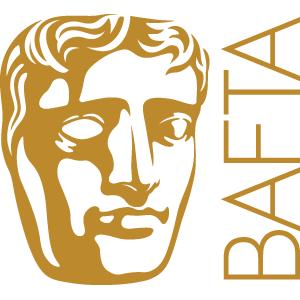
Michael: During a BAFTA Guru panel that you took part in, you mentioned that game soundtracks, when they're parts of bigger media franchises, are always obscured by their older brothers - movies. For example, your score for Harry Potter and the Half-Blood Prince garnered a BAFTA nomination and won an International Film Music Critics Association award, but the discussion among soundtrack fans tends to focus on the film's score. What do you think does a game composer have to do to escape this situation, particularly if the game that he or she scores receives less than universal acclaim?
James Hannigan: You know, what you learn quite quickly working in this business is that your music ultimately only gets as much exposure as the game it’s in, unless you’re very lucky. So, if you’re working on big games, your music does get heard, but the reception of the game also affects the perception of your music. Sometimes your music can be singled out as being one of the better aspects of a less than well received game and take on a life of its own, but at other times the opposite can happen! A bad game (or a flop even) can bury your best music and a great game can draw attention to your worst efforts. The best situation, obviously, is to have a good game that’s also commercially successful AND has good music! It’s rarely ever simple or predictable though, and it can be down to luck whether all of these things intersect at the right time. With movie license games, it can be a mixed bag. On the one hand, you’re very happy to be involved, but on the other, you are somewhat disadvantaged as a composer, as the public (and even the industry) will often make an assumption that your music is derived from the music of the original film - which is very often not the case. And that’s only if they think or care about the music in the first place. Regardless of this, you always make the most of things and set out to do your best work, staying as professional as you can throughout a project. Objectively speaking though, as a composer, you have a far greater chance of having your music noticed in games when it’s heard within a unique series or belongs to a new IP – regardless of whether it’s the best music you’ve created in your career or not.
James Hannigan: The people I worked with at EA on Harry Potter were really great and I never felt any undue pressure from them to compose in a certain way. There were moments where we may have disagreed about what such and such a sequence needed musically speaking, but that’s entirely normal and par for the course working in this or any creative industry. It’s necessary, even. Usually, they’d come up with a brief and a list of cues and were quite clear on where they wanted music heard and what it was there for, but when it came to style or how I would go about achieving that, they pretty much gave me free reign. So overall, working on the Harry Potter games and recording all that orchestral music was a real joy and I’m most grateful for getting asked on board.
Michael: In how far were you influenced by the movie soundtracks? It's probably very difficult not to be influenced in some way by the work of an artist like John Williams...
James Hannigan: Of course, but I didn’t set out to be just like him (not that I could be just like him even I wanted to be!) But at the time I got brought on board, he had been the main composer and influence on the series and there wasn’t much else out there in terms of existing Harry Potter music. As the series went on, I didn’t feel any particular pressure to become ‘more like’ the newer composers, either, which was a relief. I felt I could still be myself, and even continue developing and bringing back some of the themes I had created for the earlier entries I’d worked on. There is just one direct reference to the work of John Williams in there – Hedwig’s Theme – and I tried to arrange that in a few new and interesting ways. But this actually formed only a small part of the music.s the best music you
James Hannigan: The people I worked with at EA on Harry Potter were really great and I never felt any undue pressure from them to compose in a certain way. There were moments where we may have disagreed about what such and such a sequence needed musically speaking, but that’
Michael: In how far were you influenced by the movie soundtracks? It'
James Hannigan: Of course, but I didn’
Michael: While your compositional skills are well documented, we were wondering about your talents as a performer. What was your first instrument and which instrument is your all-time favorite?
Perhaps boringly, it was the piano, simply because I was lucky enough to have access to one as a boy and I was allowed to just sit at it and essentially mess about for ages. I’m a great believer in messing about whenever possible. Even though I had lessons from a fairly early age, I feel that having time to just explore an instrument for yourself and to feel free to create are really important in developing a creative personality. There’s really nothing worse, to my mind, than entirely formalising the process of learning and making young people feel the only worthwhile music out there is other people’s music. If anything can kill your creative spirit, that’s it.
Back to the piano… It’s just such a great tool for working through musical ideas, especially if you aim to be a composer, rather than a performer. Having said that, I feel it’s important not to develop too much of a keyboard-centred ‘western classical’ view of music, as that is really only one musical paradigm out there, and not the be all and end all of music. I do occasionally pick up other instruments, often in an attempt to get some interesting sounds and textures out of them, as I’m quite a sound-based composer. I don’t only think of music in terms of notes and harmonies.
James Hannigan: Actually, when I said that about RTS games, I was talking mostly about the lack of time I have to play them. The reason I like linear action-adventure games is simply because I can pick them up at any point (there’s not a huge learning curve) and I can progress through them at my leisure. And I enjoy the unfolding story you have in games of that kind. But I do like RTS games. They are just so addictive and never-ending though, and if I started playing too many of those again I’d never get any work done!
If I could choose to work on a particular genre or style of games in the future, I’d love it to be sci-fi or fantasy related, as that’s what I’m about, on the whole. But I’d like to do something a little more intimate and personal than usual as well; maybe an interesting experimental indie game would be very nice right now, from a purely artistic point of view. I particularly like games that think of sound and music as operating together as one – such as Rez and, to some extent, Ico.
James Hannigan: A bit difficult, but I think we managed it quite well. It’s not all symphonic music and in Command & Conquer: Red Alert 3, for example, there’s quite a bit of hybrid and fusion stuff and some rock and electronica. It’s true though that there was a slight shift towards being a bit filmic with the music, but I think it worked well. Even the orchestral music ended up being pretty quirky, I feel… with tracks like "Soviet March" and "Enter The Shogun Executioner". And I really loved what Tim [Timothy Michael Wynn] did on the project as well. Not to mention Frank’s updated "Hell March".
Michael: You teamed up with the one and only London Symphonic Orchestra for the Command & Conquer 4: Tiberian Twilight recording sessions. What did it feel like to record with such a prestigious ensemble?
James Hannigan: It wasn’t really that daunting, as I’d worked with the Philharmonia several times before on the Harry Potter series and others, and also with other orchestras such as the Slovak Symphony Orchestra and Skywalker Symphony Orchestra. But, of course, there’s always a feeling of trepidation and excitement before such sessions, and I really do have the utmost respect for the musicians involved. Overall, it’s just fun and exciting, and always a real joy and privilege to hear your music rendered by a full orchestra.
Michael: “The Prophet's Ascension” on Command & Conquer 4: Tiberian Twilight surprised lots of people, including those who had been skeptical about the franchise's new, more symphonic direction. Why did you decide to compose such a monumental piece? What was the catalyst that moved you to implement a piece like that in an RTS game - a genre that usually gravitates towards less symphonic music?
James Hannigan: That just sort of happened as a result of talking about Kane’s Ascension, as a concept, and as a result of the direction the game as a whole was taking. Maybe it was a bit of a departure from the other music of the series, thinking about it, but that’s only because that particular track was focused less on in-game action and more on character. I mean, if you’re going to have all these cutscenes featuring the characters of the game discussing their motives and higher intentions, why not have music commenting on this side of things to convey the emotions going with that? Give it an inner world, so to speak. As I’ve said before, I always try to look for ways of adding an emotional dimension with music that wouldn’t be there without music, rather than only ever adding music to enhance or increase excitement. Those cutscenes would have been pretty clinical, emotionally speaking, without that sort of evocative music, if you ask me. But don’t get me wrong, I like a bombastic and banging rock-based action track as much as the next person.
Michael: We can't pass up this opportunity to ask if you listened to any old Soviet marches while working on Command & Conquer: Red Alert 3? On that note, we still fondly remember your score for Republic: The Revolution, which had distinctly East European tunes carefully weaved into its compositions. How come you achieved this incorporation of specifically East European material so well? Any long forgotten Russian roots?
James Hannigan: I’m so glad you asked me. Actually, I don’t know much about my European origins going back more than a couple of generations, so maybe there is ‘something in my blood’ when it comes to music of this kind. Some of my favourite composers are Russian (Shostakovich, Stravinsky, Prokofiev, Rachmaninov, Tchaikovsky to name a few) and I also love European folk music traditions in general. I don’t feel like I’m ‘pretending’ to be a composer of this kind of music when I get to do it, and it does feel quite natural to me for some strange reason! I really can’t tell you why... Maybe it’s just like being an actor who is able to adopt a convincing accent that is not his own. I really like getting inside a style when I work with it.
James Hannigan: It’s a different process because it’s been given so many different treatments over the years, ranging from the 80s movie and Japanese cartoon series through to the current crop of Hollywood blockbusters. Not to mention Transformers: Prime recently.
Michael: Many soundtrack fans still recall Steve Jablonsky's more recent melodies for the Transformers feature films, but as you say, the franchise started in the 80's. Remembering your own words concerning careful stylization being very important (your BAFTA Guru talks again), can we expect that old dusty VHS spirit to be expertly implemented?
James Hannigan: The music is perhaps somewhat harsher at times than it has been in the context of Transformers before, but some of it does sit comfortably in the stylistic framework of the franchise in general. Again, you look for some sort of middle-ground when working on projects like this. You give people something fairly familiar on the one hand so as not to alienate them, but you create a new angle as well, and introduce your own themes and take on it all. And all that happens after discussing things with the developer and getting a feel for what their vision is.
Michael: After all these years, you must have built an astonishing studio. We are extremely interested to find out more about the tech you use to give silent virtual worlds a voice.
James Hannigan: I do have quite an arsenal of equipment and outboard gear in my studio but, in recent years, so much of what I do – on a production level – has crept into the software domain. So, if anything, the functional part of my studio has been getting smaller and smaller over the years – in physical size terms – the more I’ve adopted a computer-based approach to creating music. But I won’t say too much about exactly what I use, as I see technology as a means to an end when it comes to making music, rather than something to talk about in detail. But I do have a few old synths that I simply can’t let go of, even now in as games become more widely recognised as an art form and as a type of mainstream entertainment. I think BAFTA are doing some great work in this area, and also starting up some interesting debates on the future of gaming and looking at the artistry behind them. It’s good also that they appear to be equally focused on drawing attention to both the traditional and independent sectors of the industries, which really do need to be reconciled right now if you ask me.
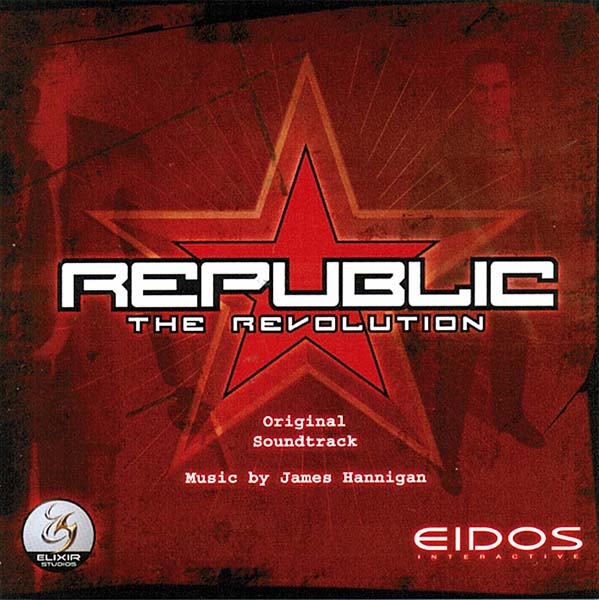
Michael: Film music has long been integrated into the academic music environment. Do you believe that game music is already there? Can we say that game soundtracks are a part of mainstream culture, or are they still as a subculture - albeit a very influential one?
James Hannigan: I hate to say it, but I don’t think game music has become quite as mainstream as a lot of film music has just yet, but things are moving that way. Music in games is definitely culturally significant and influential in the wider world though, in the sense that when certain pieces of iconic game music or sounds get heard by people (think Mario, Halo or even the sound of Space Invaders), then this absolutely signifies games and their uniqueness in the cultural landscape, even to people relatively unfamiliar with them. And, of course, there’s clearly a lot of wonderful music in games emerging all the time, and it’s undeniable to anyone bothering to listen to any of it. But saying this isn’t the same as game music being taken seriously by the music establishment and/or arts media, and that is rather frustrating for people working in the industry, if it even matters to them at all. I suspect part of the problem (if it even is a problem) is that games, in general, haven’t really been created to comment on the human condition all that much in quite the way, say, a lot of books and films have, and that is simply what a lot of people expect ‘art’ to do - rightly or wrongly. It could just be that the world is only now learning to recognise how games can be art or meaningful in life, or are redefining what art actually is in the wake of interactive entertainment. If you look at games and expect them to function as films then, of course, you are going to find them lacking in the areas that film excels in. Just as, say, you might find a film adaptation of a particular book lacking in some way because it isn’t a book. With games, we are dealing with something relatively new. So, part of the problem is actually about perception and a lack of understanding and imagination. Real change and ‘validation’ for a new art form can only happen over a very long period of time, I tend to feel. It’s not easy to change people’s minds and the way they think, or to challenge the status quo in any area of life, so you often simply have to wait until people who think a certain way fade away or lose their relevance before there’s any real change. A lot of young people understand games from babyhood now, so when they grow up and are in a greater position of power and outnumber others, there won’t even be a debate within society about whether games are significant or not. Let’s not forget that film itself was seen as a silly, superficial distraction by many for a long time after its inception, but very few would argue like that today. That isn’t because somebody flicked the ‘films are art’ switch on, but because it took time to demonstrate what the medium could do and, I think, simply because some of the vocal people who didn’t get film simply took time to fade away. The same process will happen with games, and already is happening, but it’s just a painfully slow process.
Michael: Would you agree that the separation of game music and general orchestral music may be considered a manifestation of the “Peter Pan” syndrome which David Cage talked about at the most recent DICE summit?
James Hannigan: Not necessarily. I can see where he’s coming from, and I really liked his last game, but also wonder why games need to get into this sort of serious and ‘mature’ territory by default – if that’s what he’s actually saying (he may not be!) If someone wants to do that, and make grown up games as they see it, then they should be able to get on with it, but I don’t think anybody can really determine what games should be about in general. I do love filmic games when they are really done right, but I think it’s actually a very, very difficult thing to achieve and do with any authenticity in a gaming context.
I’m simply suggesting that games mean different things to different people. Some are filmic, some are mindless fun, some are mere distractions you play for 30 seconds while waiting for a bus to arrive and possibly never play again. There’s no right way to make a game, surely? There’s only making your particular game work. Historically though, it is outsiders who tend to change the face of an industry (think Orson Welles coming into film from radio and creating Citizen Kane), rather than those already working in one - so I’m all for new and unexpected people coming in from differing backgrounds and disciplines making games as well, shaking things up a bit and freeing the industry of its conventions. If people like David Cage can do interesting things and take a novel approach, then that’s really great.
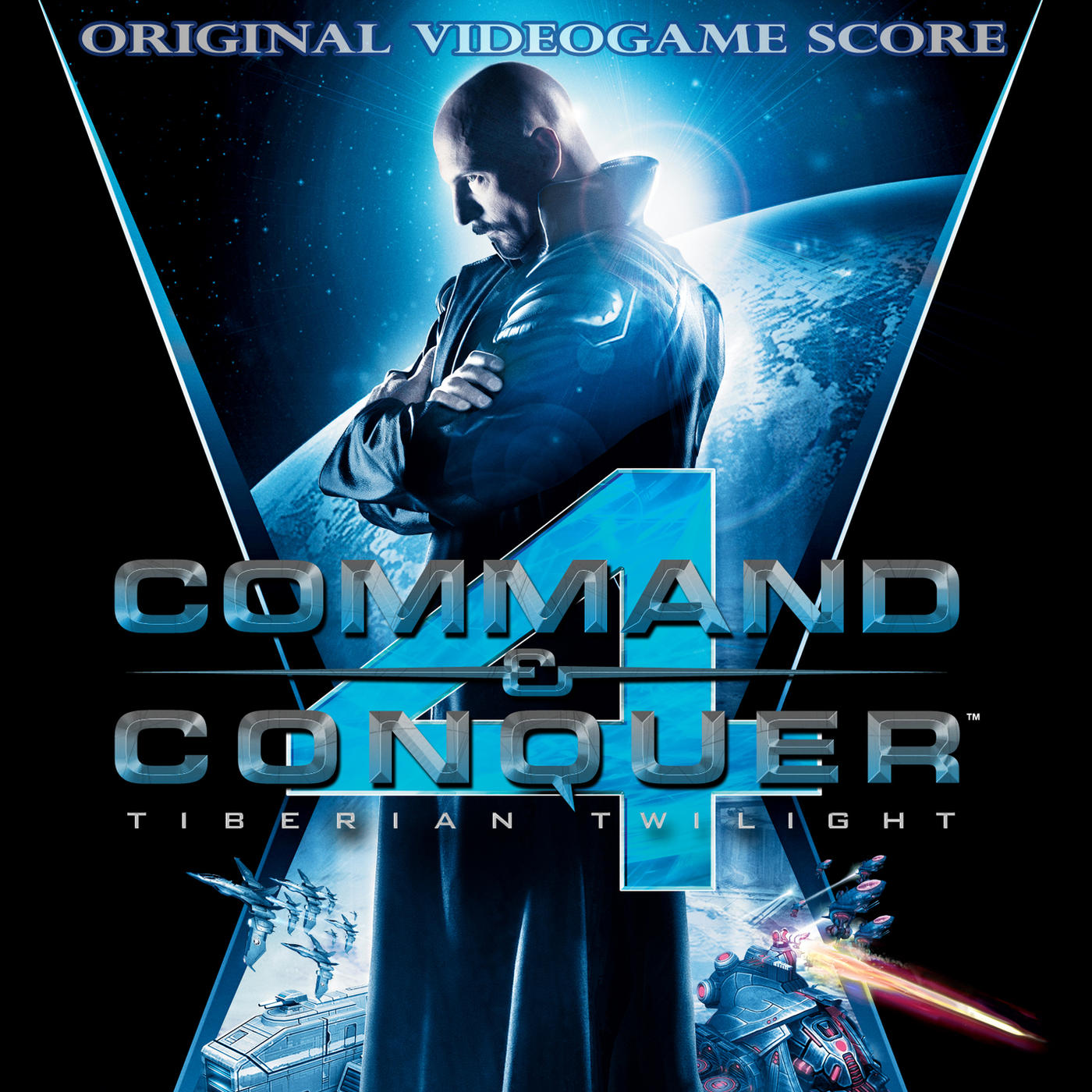
Michael: Being Russian, I've still been unable to decipher the cryptic lyrics for "Soviet March" and I definitely tried hard! We really don’t want to wake up any sleeping KGB agents to steal the true meaning of the lyrics from you, so we would really appreciate your cooperation here. What are the lyrics?
James Hannigan: As it happens, I didn’t write the lyrics; that was one of the writers at EA. I simply wrote the music itself and set those words to my music. So I can’t actually enlighten you on that front. I do so wish though that we had recorded a Russian speaking choir for this track to give it more authenticity, but there just wasn’t the time to figure all that out. Maybe there’ll be a chance in future to do another version and really nail the Russian this time! Who knows?
Michael: What was the last soundtrack you listened to and just loved?
James Hannigan: War Horse by John Williams was the last one I think. Very nice, as you’d expect.
Michael: Sadly it’s time to turn off our interrogation machine. We hope that it wasn’t too unpleasant an exercise to type all these answers for us. We’re sure that you’ll be able to use your hands again pretty soon :) Do you have any message for your fans around the world?
James Hannigan: Thank you for taking an interest, that’s all I can say, and thanks for supporting the music of this medium in general. I think some of the best days are yet to come when it comes to making music for games, and I very much hope I can continue to play a part in things.
Michael: Grand merci for spending so much time with us. Carpe diem.
- Info about Jason Graves
Related:

